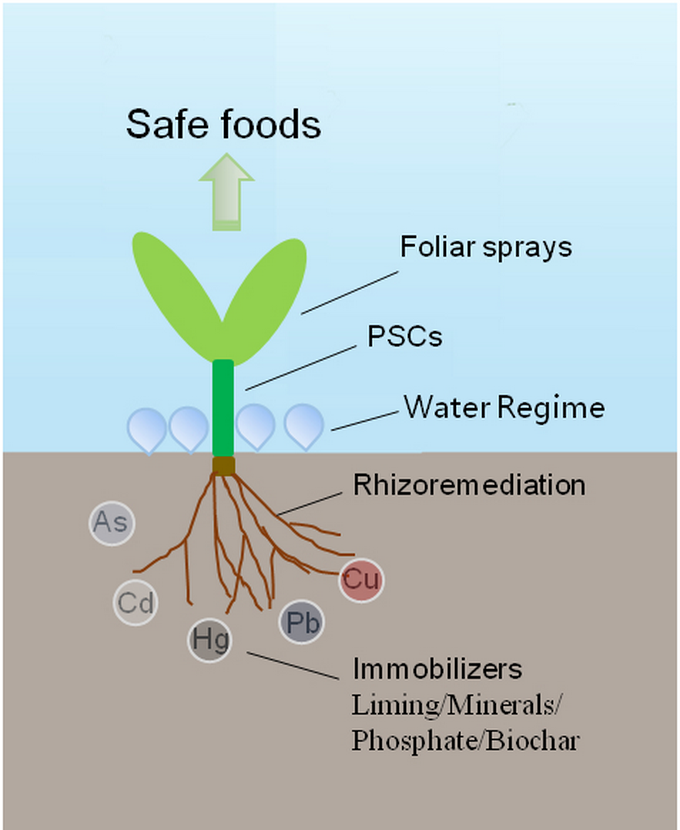- Home >> News&Events >> Events
Center for Agricultural Resources Research expert reviews technical solutions for the safe utilization of heavy metal-polluted farmland in China
In the past decades, different strategies have been explored to address the farmland heavy metal problem, mainly metal removal, substitute planting and safe farming. Safe farming was intended to address the soil-borne food heavy metal issue and has been advocated as a priority solution for farmland pollution by the government. Many conventional and novel technologies have been tested for safe farming in recent years. While most reduced heavy metals in grains, none of the technologies alone were found to be sufficient in field practice to meet national food standards. The current best practice is recognized as the combination of several agronomic measures, including pollution-safe cultivars, optimal water management, liming and conventional metal immobilizers.
The current remediation market is burgeoning and to some extent chaotic in China. A unified conceptual framework is helpful for the concerted efforts of restorationists to address farmland heavy metal pollution in China and other countries. To formulate a responsible technical scheme, Dr Xiaofang Li proposes two criteria for evaluating the candidate technology, particularly the metal immobilizers. First, any remediation measures must respect the nature of the soil. To soil scientists, soil is a viable entity with a long history of biogeochemical weathering. Mineral ameliorants require careful and systematic evaluation before their large-scale promotion. It is not recommended to apply any chemicals to permanently change the constitution of arable soil. Second, any technical solutions should respect the interests of farmers. Unlike ecological restoration of natural ecosystems, safe farming per se is the safe utilization of land resources that denies long-term economic input. As far as it goes, both theoretical synthesis and large-scale field trials are required for a path towards a unified set of approaches that are accessible and feasible internationally and could be applied by governmental agencies.

Figure:An illustration of the technical framework for safe farming in heavy metal polluted farmland. PSCs, pollution-safe cultivars.
